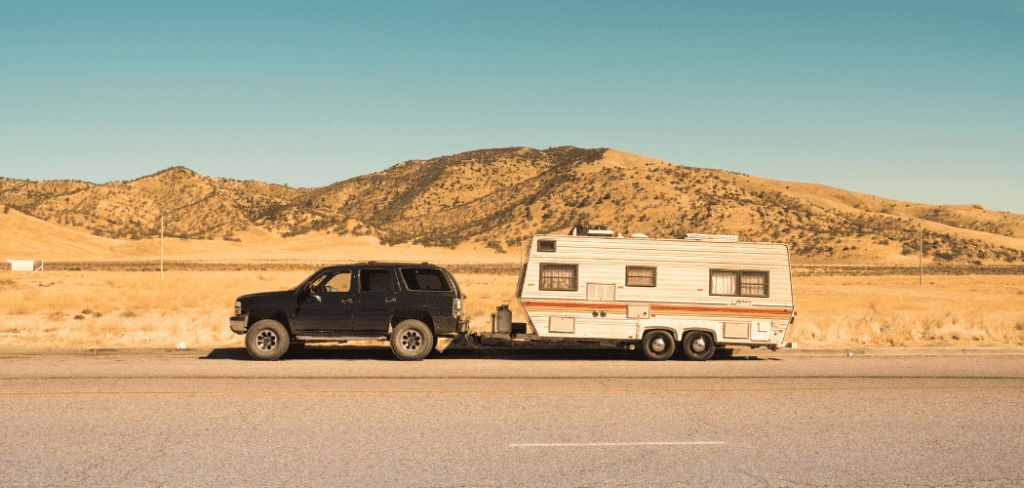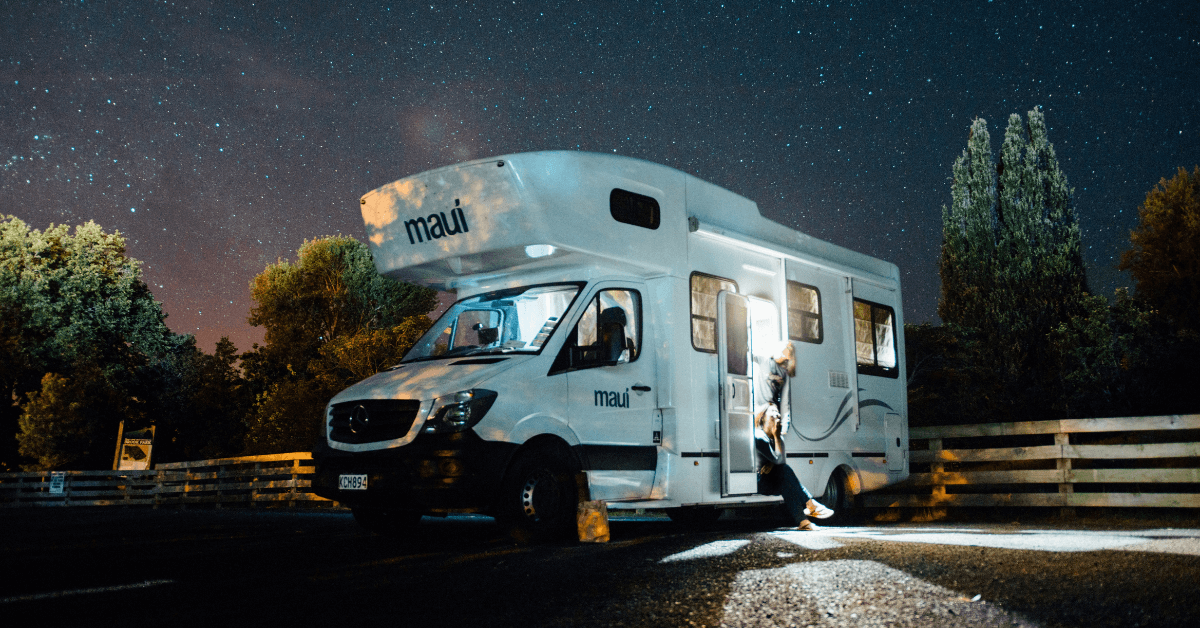For most, the American dream is to own a home with a picket fence. For a few others, however, it’s a home on wheels (a fifth wheel or motorhome) that can help them vacation on a budget while simultaneously visiting wherever they want, whenever they want. Unfortunately, the second group rarely stops to consider the dangers of living in an RV.
I mean, sure, in myriad ways, living in an RV does mitigate several travel-related risks. Such risks include sharing elevators and walking through hallways with fellow hotel guests or potentially sitting in metal tubes for hours on end near sick passengers.
That said, like with all things, there are downsides to this lifestyle (sometimes life-threatening), and that’s what inspired me to create this guide on the dangers of living in an RV you should be aware of.
I won’t keep you waiting.
The Seven Dangers Of Living In An RV
Here are the seven dangers of living in an RV:
1. You’re Vulnerable to the Elements
It is tempting to think of RVs as tanks on wheels, but these vehicles can be extremely dangerous places to be in amidst severe weather conditions. As RVshare recommends, “Before leaving for your travel destination, figure out all the places along the way you can seek shelter if a terrible condition strikes (such as tornado warnings or extreme winds).”
Even minor storms have been known to damage RV awnings, toss outdoor furniture, and sometimes even send branches crashing down on RVs’ shiny windshields. To top it off, ensure you bring an emergency weather radio on all your trips for cases when you can’t get phone service, or your cell dies.
Related: Camper Accessories For Outside
2. Carbon Monoxide
Carbon monoxide is a lethal gas released after an incomplete combustion of hydrocarbons. In an ideal world, the best way to avoid this danger of living in an RV would be to avoid combustion appliances altogether. Unfortunately, if you’ve ever owned a standard propane-fueled RV, you know these appliances are basically inescapable.
So how do you minimize the risk of carbon monoxide poisoning while living in an RV? I thought you’d never ask.
Due to the inherent carbon monoxide poisoning risk in your recreational vehicle, your rig’s manufacturer has likely already installed a carbon monoxide detector. Note, however, that these UL-certified detectors will only sound the alarm when high levels of CO are detected.
I suggest investing in an additional detector that’s more sensitive to even low gas levels. A great example is the T40 Rattler low-level CO detector. This unit can detect as low as 1.00 ppm.
3. Injuries Are Reported Often

If you’re not yet used to living in an RV, a danger to be wary of is that it’ll be extremely easy to injure yourself before you get used to the different environment. Injuries to watch out for include burning yourself, slamming the doors on your fingers, as well as falling and hitting your head.
Other times, the injuries can be life-changing. Here are two unfortunate scenarios that unfolded on my friends who were just getting started living in an RV.
- One friend tripped while holding his child, and in order to protect the baby from any injuries, he sacrificed himself. Unfortunately, he landed on both elbows, and the injuries were so severe that they took years to heal.
- Another fell out of her RV’s front door and landed on the trailer’s hitch. She is yet to recover from the accidents totally.
I’m not trying to scare you away from giving this lifestyle a shot. I’d just like you to be aware that these accidents happen, and you’ll need to take measures in the early days to minimize their chances in the future.
4. Break-Ins and Theft
A guide on the dangers of living in an RV would be incomplete without this point.
I had my RV for a year before it came to my attention that I could open most (if not all) locks on RV storage compartments using the same key. Even an RV’s door handle lock has a master key anyone can purchase on the net.
The only unique thing about your RV’s door lock is its deadbolt, which, apparently, is also easy to tackle for anyone remotely handy.
With that in mind, while living in an RV, you’ll need to put forth measures that sufficiently protect you and your loved ones. Several tips and tricks you can employ include;
- Investing in wired security systems
- Only parking in well-lit areas if the situation allows
- Not storing valuable items in your RV’s storage compartments until you change the locks
- If you own a towable recreational vehicle, keep a tow hitch lock (coupler lock) on whenever the RV isn’t connected to the tow vehicle
- Always locking the RV’s doors with the deadbolt
Related: How to Pack an RV Kitchen
5. What If You Fall Ill?
Adventurers with physically limiting health conditions should never live in RVs alone, lest they find themselves in challenging situations. This also includes travelers who tend to fall ill when exposed to the elements.
Here are five different scenarios that may unfold if you have a severe health condition and are out on the road alone.
- Breakdowns can and will happen. If you’re physically unwell and calling for help isn’t an option, doing the repairs yourself will be virtually impossible
- Your health condition may worsen when you’re too far from any medical facilities or even civilization
- Road vibrations, which are constant when living in and driving an RV, tend to worsen some health conditions, like back problems and Arthritis.
Over the years, I’ve watched one too many individuals who were too ill insist on investing in a camper and motor home without any regard for the countless dangers of living in an RV in such a condition. What’s worse? All these individuals weren’t just risking their lives. They were risking the lives of fellow travelers on the road as well.
6. They’re Prone to Accidents If Not Handled Well

Ask anyone who has traveled with an RV before, and they’ll confirm that these vehicles demand self-assured drivers who comprehend that large vehicles need exceptional skills behind the wheel. For example, to efficiently drive an RV, you’ll need to learn how to pack using the side mirrors instead of simply judging potential obstacles and the distance over your shoulder.
You’ll also need to learn how to drive downhill without constantly stomping on the brakes. Also, all RV drivers know that these vehicles will not – and cannot – stop on a dime.
This brings me to the next danger of living in an RV.
7. Beware of Distractions
While driving around in the RV you live in, beware of any distractions that could take your attention from the road. This is particularly true if many people occupy your RV. The more people, the more likely the distractions for the driver will be.
Even worse, the more festive the occasion you’re attending as a group, the more likely the driver is to engage in activities and events that may hamper their driving ability (think drinking, smoking, etc.) Therefore, if you’ll be traveling and living in an RV as a group, set strict ground rules for interacting with the driver before leaving for your destinations.
Dangers of Living In An RV: Final Thoughts
There you have it, my detailed guide on the 7 dangers of living in an RV. As a general rule of thumb, “No matter where you’ve decided to stop for the night, remember one simple rule: When in doubt, move.”
It’s natural for new RV’ers to have a few jitters during the first several nights, but if you ever feel overly uncomfortable about where your RV is parked, move on. Intuition is a gift, but only when you listen to what it’s trying to tell you. Do this, and you’ll never have to worry about dangers of living in an RV.
